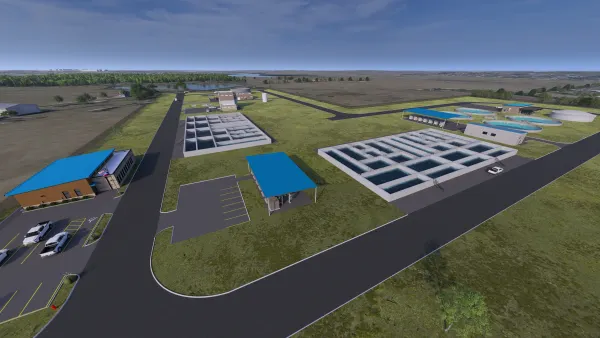Dive Brief:
- Orlando International Airport's largest-ever expansion is about 90% complete, according to a Greater Orlando Aviation Authority press release shared with Construction Dive. The three-level South Terminal C project at Florida's busiest airport will encompass 300 acres, add 15 gates to accommodate up to 20 aircraft and serve 10-12 million additional passengers each year, the release said.
- A Turner-Kiewit joint venture provided construction management services for the Landside Terminal C, Hensel Phelps served as construction manager for the Airside Terminal C and Vanderlande was the design/build/operate/maintain contractor for the approximately $3 billion project.
- The new terminal features a high-tech, low-touch design, and aims to achieve a high green building standard as the world's first LEEDv4 airport campus. Construction began in 2017, and the terminal is expected to open in July, according to the Greater Orlando Aviation Authority (GOAA).
Dive Insight:
The contractors faced some supply chain issues during the building process, Turner Construction Vice President & Business Manager Jeff Justen told Construction Dive in an email. They were able to find alternative options through collaboration with GOAA, the design team and suppliers.
South Terminal C's top-floor arrivals design is unique and aims to center travelers, who will be greeted with views of the local landscape, a variety of art and trees. Arriving passengers retrieve checked baggage on the same level where they deplane.
"[The airport design must] provide a ‘sense of place’ reflected by its architecture and the character of Central Florida," said Curtis Fentress, principal in charge of design with Fentress Architects, in the release. "With the innovative skylight that produces dappled light, passengers will feel as though they are walking through an orange grove, one of this area’s most beloved local features. We also utilized plants, trees and new technology throughout that will enhance the passenger experience."
For an easier, more efficient screening process, the new terminal has fully automated screening lanes in TSA checkpoints, 100% facial recognition cameras for international arrival and departures and an RFID baggage handling system which is quieter and allows passengers to track their bags.
The terminal features an Experimental Media Environment with 32 curved digital displays suspended from the ceiling, more than 6,500 LED wall tiles and three 33-foot-high panoramic screens which will show an array of media and programmable content.
"The displays will immerse passengers in a Florida-friendly environment from gate to curb," said Justen. "These innovations, along with many of the other high-tech, passenger-centric aspects were planned prior to the pandemic."
Connected and climate-conscious design
The project has multiple environmental goals including 28% reduced energy cost, 44% reduced potable water use, greater waste diversion and improved indoor air quality, according to Justen.
To achieve this, airplanes parked at the terminal will use pre-conditioned air and will not need to run auxiliary power units, which will reduce noise and CO2 emissions. GOAA will also use reclaimed water for all of the landscaping. The terminal uses more than 40 products with environmental product declarations, which communicate what they're made of and how they impact the environment across their entire life cycle, Justen said.
An adjacent project is the new South Intermodal Terminal Facility which includes multimodal stations, bus terminals, surface parking and platforms for inter-city rail, commuter rail and light rail, according to Turner’s website. The facility features an elevated passenger transfer system that connects to the automated people mover and parking garage, also under construction.
Brightline last month completed a section of its Orlando Airport-to-West Palm Beach extension, and the SunRail commuter rail line may also connect to the terminal in the future.















